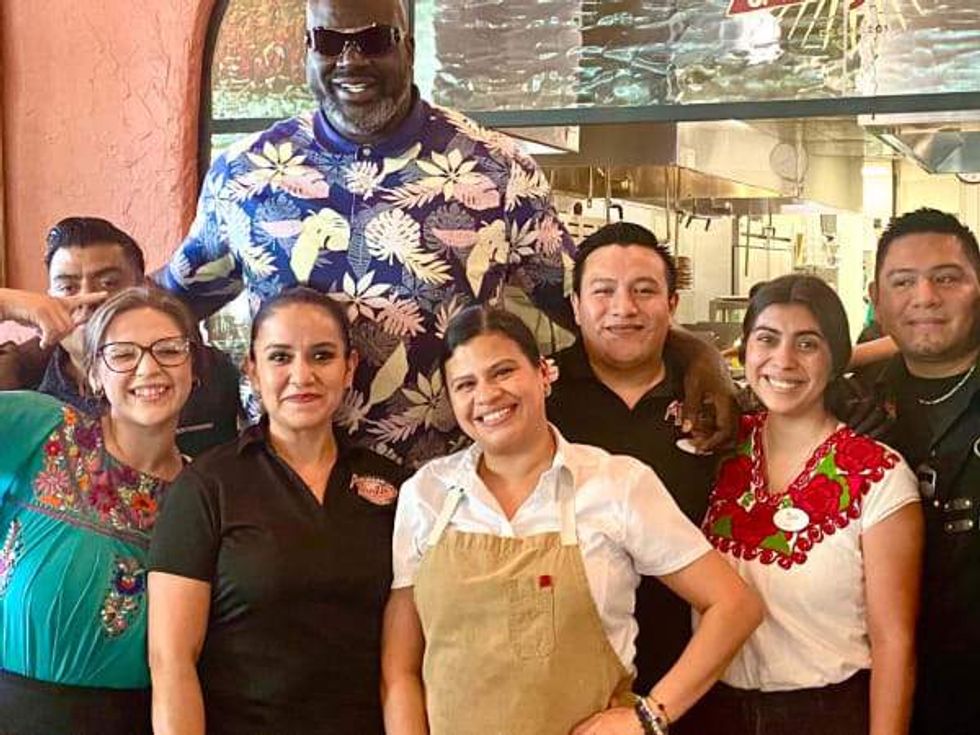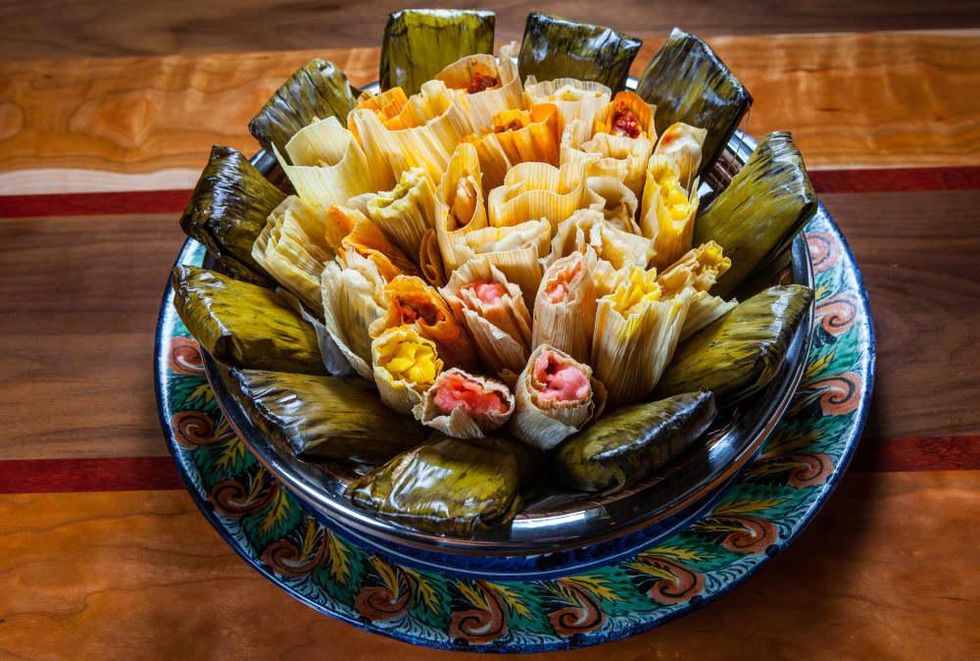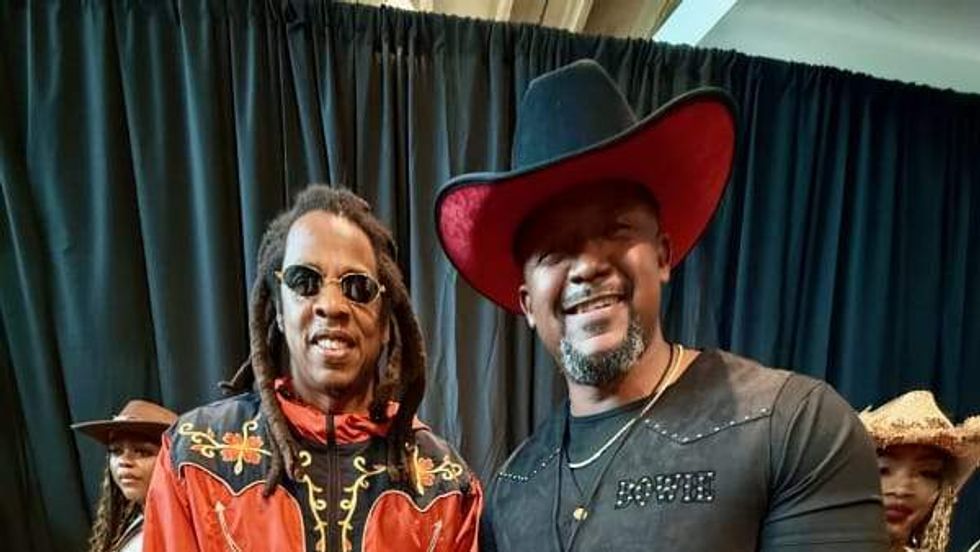Screw the budget, let's talk beer
Beer lovers look to Texas legislature for more access to better brew

 House Bills 660 and 602 are working their way through the Texas Legislature. Letyour rep know what you think.Courtesy photo
House Bills 660 and 602 are working their way through the Texas Legislature. Letyour rep know what you think.Courtesy photo Kevin Floyd, right, with Bobby Heugel, says that Hay Merchant could have been abrewpub — if it had been economically attractive.Photo by © 2011 Debora Smail | realityphotography.net
Kevin Floyd, right, with Bobby Heugel, says that Hay Merchant could have been abrewpub — if it had been economically attractive.Photo by © 2011 Debora Smail | realityphotography.net Hay Merchant is slated to open in the former Chances location.
Hay Merchant is slated to open in the former Chances location.
 Photo by bitzi☂
Photo by bitzi☂
UPDATE: House Bill 602, which would allow breweries to distribute a small amount of beer on-site after tours, has passed the House. If the bill is approved by the Senate, craft breweries will be allowed to give up to two six-packs of beer to customers at the conclusion of a brewery tour.
---------------------
When Kevin Floyd began planning Hay Merchant, a dedicated beer bar soon to open in the former Chances building, as a mecca for craft beer lovers, he considered opening it as a brewpub — until Texas' unfortunate economic reality got in the way of that dream.
Houston has been without a working brewpub since Two Rows closed in October, and Floyd says he’d have loved to take his home-brewing public — had it been remotely inviting economically.
Texas' labyrinth liquor laws and the problems they’ve posed to small-business owners has been well-documented, but it can be argued that none have suffered at the hands of our dated three-tier system quite like the state's beer geeks.
Texas Beer Bills
Under current Texas law, breweries can’t sell their wares on-site (you’re drinking for free at Saint Arnold on Saturdays, if you were unaware — you’re just paying for the tour) and brewpubs are forbidden from distributing their product to stores.
Two bills are currently working their way through the Texas legislature that would change all that, however. House Bill 602 would allow craft breweries like Saint Arnold to sell some of their product on-site after the tour. Dock sales, as they’re called, have taken off at craft breweries like 3 Floyds in Indiana, where the sale of the brewery’s Dark Lord beer has become a sort of once-a-year festival, with people traveling from out-of-state to snap up cases on Dark Lord Day.
HB 660, another beer bill in the legislature, would allow brewpubs to put their products on store shelves.
Like most issues, you’ll find people who come down on both sides. But it’s Floyd’s opinion that it's the brewpubs who suffer most. Although he’s behind 602 on principle, it’s 660 that has his most vocal support.
While 602 would help make existing businesses more money, Floyd believes 660 would remove a very real impediment to entrepreneurs and beer enthusiasts who want a more practical business model.
“660 will make the most positive change, and quickly, because it will remove a legal obstacle to new business,” Floyd argues. “Nobody decides not to open a craft brewery because they can’t dock sale. People do opt not to open brewpubs because they can’t grow.”
“[The brewpub] is a good model because you can make money on the restaurant aspect during the brewery’s early years. It’s a good way to start-up a business and move to a regional brewery,” Floyd says. “In Texas, though, you can’t transition like that; it’s really hard to make money.”
The model has worked well in less-restrictive climates. Chicago’s Goose Island and Chico, Cali.’s Sierra Nevada are both examples of brewpubs that were able to expand with tremendous success.
Sierra Nevada is, of course, readily available on Texas shelves. So why isn't Austin-based Jester King, for example?
The Three-Tier System
Texas’ three-tier system was created out of necessity after Prohibition ended in the 1930s in an effort to stymie organized crime. If you wanted to be in the booze biz, you had to pick one — produce, distribute or sell.
Today, with mob funding effectively foiled, it’s the distributors who profit most from the system, and it’s no coincidence that their lobbying group is one of the most powerful and well-funded in the country.
House Bill 602, however, might have a chance at passing this year, after being voted down in 2007 and 2009. Two lobbying groups for distributors, Wholesale Beer Distributors of Texas and Beer Alliance of Texas, have voiced support for an amended version.
“660 will make the most positive change, and quickly, because it will remove a legal obstacle to new business,” Floyd argues. “Nobody decides not to open a craft brewery because they can’t dock sale. People do opt not to open brewpubs because they can’t grow.”
Although it has its arguably best-ever chance at passing, there are those in the beer biz who oppose it. The idea of a Dark Lord Day at Saint Arnold, for example, raises some eyebrows, because it could make the availability of limited-release items even more unaccessible. The thinking is that if breweries are popular enough to logically expect that kind of demand, why would they distribute when they could stock up, cut the middle man and keep more money to themselves?
The scenario might be a stretch, but it might also give smaller breweries less reason to make their products accessible to other markets.
House Bill 660, which could give impetus to new business, has a major supporter in Texas Beer Freedom, a lobbying group made up of brewpub owners, but counts Wholesale Beer Distributors of Texas as its most vehement opponent.
Although Texas could badly use the tax dollars, and is effectively putting its own producers at a disadvantage by prohibiting competition on store shelves with out-of-state brewpubs, WBDT wants to preserve the three-tier system (and its interests) as-is at all costs. Passing 660, they argue, would blur the line between retailer and manufactuer, opening the flood gates for legislative change.
What it means to you
More access to better beer.
HB 602 may get voted on as early as Thursday, and HB 660 is stalled in commitee, but not dead — so if you want to let your state representative know what you think, you can do so here.





